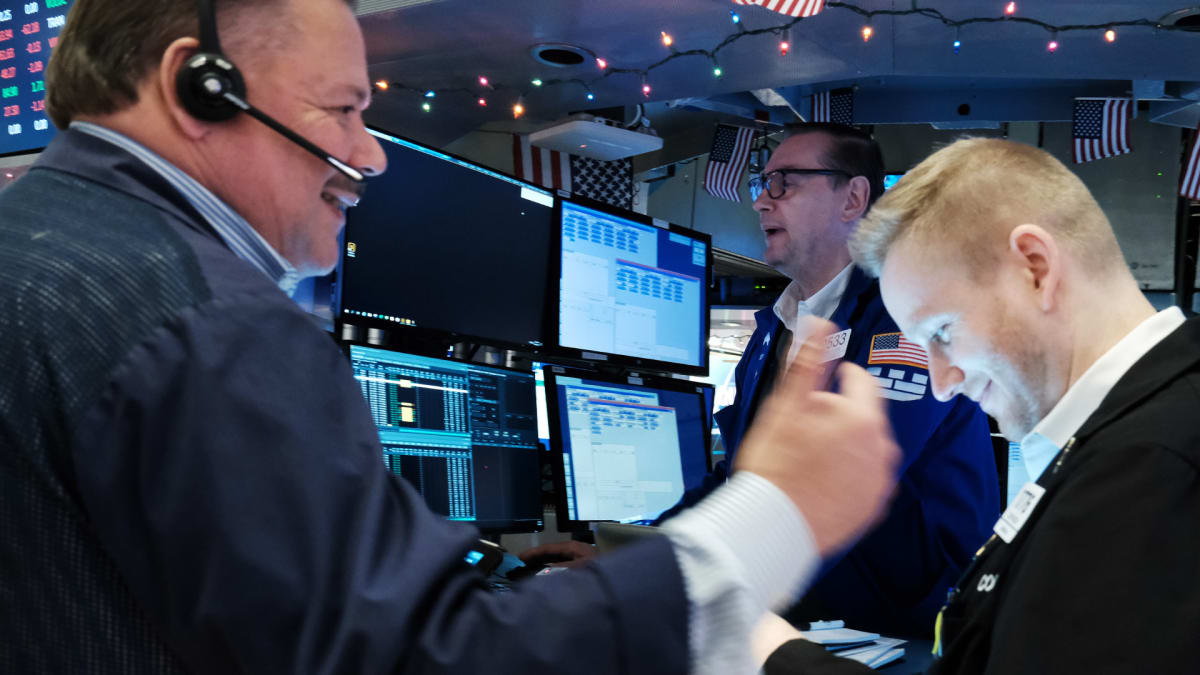
Stocks finished lower Tuesday as global markets kicked-off new year trading on a mixed note, powered in part by softer Treasury bond yields and positive economic data from Europe but capped by worries over aggressive central bank rate hikes.
With trading volumes still thin, and some major markets closed over the tail end of the holiday season, stocks are set for a firmer open following their worst performance since 2008, which saw a 20% decline for the MSCI World Index and the loss of more than $18 trillion in global equity value.
A softer reading for inflation in Germany, a good benchmark for Europe-wide figures, as well as a firming job market in the bloc's biggest economy helped power the Stoxx 600 to a 1.33% gain by the close of trading in Frankfurt, while London's FTSE 100 gained 1.42% as the pound eased to 1.1971 against the U.S dollar and commodity prices leaped.
Benchmark 10-year Treasury note yields were marked down at 3.767% while the U.S. dollar index, which tracks the greenback against a basket of six global currencies, jumped 1.1% to 104.66 in late New York trading even as expectations of a smaller, 25 basis point rate hike from the Fed next month continue to accelerate.
In that respect, the Commerce Department's December jobs report will be the undoubted highlight of a light week of data releases and earnings reports to kick off the new year, as investors look for further indications that wage increases are helping fuel inflation pressures in the world's biggest economy.
Analysts expect employers added a net 200,000 new jobs to the economy last month, a notable slowdown from the 263,000 tally recorded in November and the slowest since May of 2021. Headline unemployment is expected to hold at 3.7%, while average hourly earnings are forecast to slow modestly to an annualized rate of 5.0%.
Minutes from the Fed's December meeting, slated for release on Wednesday, will also provide clues as to the level of concern policymakers have regarding inflation pressures from the labor market following four consecutive 75 basis point rate increases.
The CME Group's FedWatch suggests a 72.3% chance of a 25 basis point hike on February 1, up from just 59.7% last week and 46.1% at the beginning of December.
U.S. stocks were looking to rebound from their worst year since the global financial crisis.
The Dow Jones Industrial Average ended down 10 points, or 0.03%, to 33,136, while the S&P 500 lost 0.40%. The tech-focused Nasdaq gave up 0.76%, thanks in part to outsized declines for Tesla (TSLA) and Apple (AAPL).
Overnight in Asia, a weaker-than-expected reading of economic activity in China, based on Caixin PMI data, underscored concerns over the surge in Covid infections in the world's second-largest economy following the easing of business and travel restrictions last month and kept a lid on regional stock gains, with the MSCI ex-Japan index rising only 0.28%. Tokyo's Nikkei 225 was closed.







